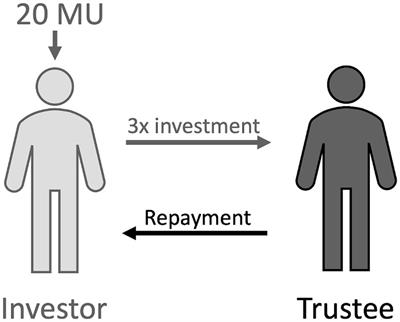It Takes Two: Examining the Dynamic Nature of Cooperative Behaviour in Adolescents
Cooperating with those around us is an important facet of functioning in modern-day society.

Forming successful cooperative relationships requires trust, reciprocity, and other interpersonal skills that continue to develop during adolescence. This study examined the dynamic nature of how trust is formed and broken among 248 adolescents (Males = 110, MAge = 15.1 years) throughout an iterative cooperative task (i.e., the Trust Game; Berg et al., 1995) and the interindividual differences that alter the success of their relationships. In our study, adolescents from the same classroom were anonymously paired and played a 10-trial version of the Trust Game, which examines trust and reciprocity. We found that trust is formed in the first half of the game and decreases as the threat of defection nears in the last trial. As the game progressed, the relationship between trial number and investments on the subsequent trial was mediated by percent return (ab = -0.09, 95% CI = [-0.15, -0.02]). Importantly, this relationship was moderated by social skills (p = .003) and impulsivity (p = .001), such that increases in either were associated with decreased percent return and investments on future trials. Overall, we found that cooperation is an adaptive behaviour which requires trust and reciprocity, and adolescents need to exhibit both of these behaviours to have fruitful interactions.
These findings suggest that interventions to help students think about their partner's perspective and stress the longer-term nature of interactions with peers would foster successful cooperation in social situations.Commented [TB1]: Added to address Reviewer 3's first comment.
Read the full article at the original website
References:
